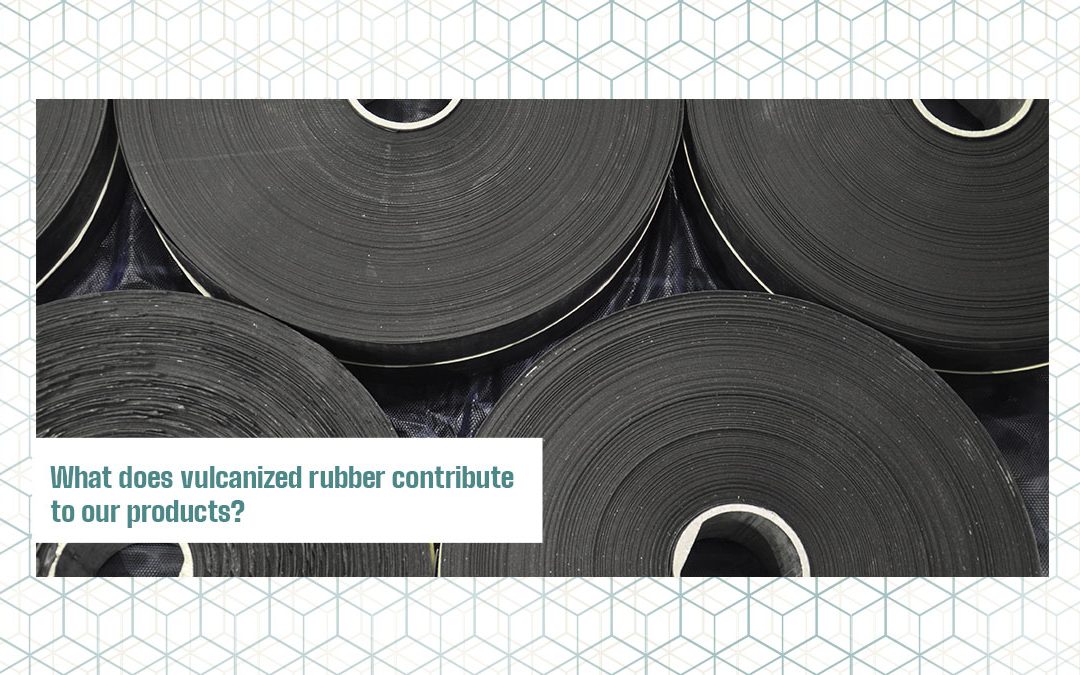Vulcanized rubber is an extremely versatile material. It’s also very strong and durable.
It was discovered by chance, during the first half of the 19th century, by Charles Goodyear. He was working in his laboratory when raw rubber and sulphur dropped onto a stove and the heat produced the desired result.
This product with a long history and multiple applications in many fields owes its existence to chance.
What is vulcanized rubber?
Vulcanized rubber is a material obtained by applying a chemical process to natural rubber.
Natural rubber and vulcanized rubber
Natural rubber is a raw material with very interesting properties of its own. It is made by heating or chemically treating the sap of the rubber plant (better known as latex).
Some of its features can be very useful in industry, as it is elastic and adhesive. Even so, the discovery of the modification that transforms it into vulcanized rubber made it more valuable still. Its uses and applications have become widespread.
It meets millions of needs. It is used to make hoses, tyres, pipes or anti-slip safety elements (such as ferrules and tool handles) or internal joints in agricultural machinery.
What is vulcanization?
Vulcanization is the process by which vulcanized rubber is obtained. It is a chemical reaction made by adding sulphur (and other elements) to natural rubber. It is then heated to about 120º for a set time.
Depending on the time, temperature and the elements in the mixture, the material obtained will have a different appearance and very specific properties.
Vulcanized rubber is a particularly durable material, and therefore very suitable for certain actions and functions, as explained below.
Benefits of Vulcanized Rubber for Fortaps Products
Vulcanization makes natural rubber an element that gives extra strength to any product. At FORTAPS we can explain some properties that make it particularly suitable for certain functions.
It does not melt when heated
The mixture with sulphur and its subsequent heating causes the rubber to harden. Unlike other elements, heat converts rubber into a thermorigid material. When it comes into contact with a heat source, the rubber does not expand or stretch, but rather contracts or shrinks. Its inability to soften makes it particularly suitable for assisting the functions of products such as FORTAPS pipe caps.
Abrasion resistance
This is one of its most valuable features. It is the perfect material for making any of our ferrules. Its high wear resistance means that it withstands friction and shock and any type of abrasion better.
It does not dissolve in organic substances
When in contact with organic fluids such as (for example, oils), rubber usually responds by modifying its dimensions by contracting or spreading out, but it doesn’t dissolve. Some of its functional characteristics can also change. In any case, this does not mean that rubber loses its usefulness, but that success depends on finding the most suitable element for the kind of action it will be used for.
All these properties make it ideal to complete and improve FORTAPS products. Because of the functions that our articles are designed to fulfil, they need to be made of a strong material. They are structural components that function as points of attachment, adhesion, anti-slip, protection and seals.
We base our work on the quality of our materials and processes. This is how we achieve the longest duration and endurance, and why we choose the most suitable substances. For example, our Low Density Polyethylene (LDPE) and High Density Polyethylene (HDPE) are perfect for parts that require greater strength due to their position or uses.
It is a value that we adapt to your needs. You can choose from a wide variety of products with the guarantee of our commitment to our customers, continuous improvement and sustainability. By choosing FORTAPS you enjoy all the advantages of vulcanized rubber, and can see all our new developments.





